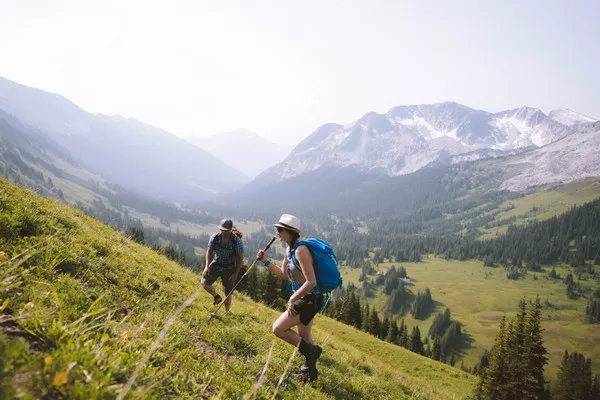Hiking, the simple act of walking in nature, offers a myriad of benefits for both physical and mental well-being. For beginners, embarking on a hiking journey can be an exhilarating experience filled with discovery and adventure. However, to ensure a safe and enjoyable outing, proper preparation and knowledge are essential. In this comprehensive guide, we will cover everything beginners need to know to start hiking confidently and responsibly.
1. Choose the Right Trail
Before setting out on your hike, it’s crucial to select a trail that matches your fitness level and experience. Beginner-friendly trails are typically well-marked, relatively flat, and have manageable distances. Research local hiking trails or consult guidebooks and online resources to find options suitable for beginners. Consider factors such as trail length, elevation gain, terrain difficulty, and weather conditions.
2. Start Small
As a beginner, it’s wise to start with shorter hikes and gradually increase the distance and difficulty as your fitness and confidence grow. Begin with trails that can be completed in a few hours, allowing you to gauge your endurance and comfort level. Over time, you can progress to longer and more challenging hikes.
3. Check the Weather Forecast
Always check the weather forecast before heading out on a hike. Weather conditions can greatly impact your safety and enjoyment on the trail. Dress appropriately for the forecasted conditions, and be prepared for changes in weather. Carry extra layers, rain gear, and sun protection as needed.
4. Pack the Essentials
Packing the right gear and supplies is essential for a successful hike. Here are some essential items to bring:
- Hydration: Carry an adequate supply of water to stay hydrated throughout the hike. Consider a hydration bladder or water bottles.
- Navigation: Bring a map, compass, or GPS device to navigate the trail. Familiarize yourself with the route before setting out.
- First Aid Kit: Pack a basic first aid kit with essentials such as bandages, antiseptic wipes, pain relievers, and blister treatment.
- Food: Bring high-energy snacks such as trail mix, energy bars, and fruit to keep you fueled during the hike.
Emergency Supplies: Carry a whistle, flashlight, multi-tool, and emergency blanket for unexpected situations. - Clothing: Dress in layers and wear moisture-wicking clothing to stay comfortable. Choose sturdy hiking shoes or boots with good traction.
5. Hike with a Partner
Hiking with a partner or in a group is not only more enjoyable but also safer. Having someone with you can provide assistance in case of an emergency and offer companionship along the trail. If hiking alone, inform someone of your plans, including your intended route and expected return time.
6. Pace Yourself
When hiking, maintain a steady pace that allows you to enjoy the scenery and conserve energy. Take breaks as needed to rest, hydrate, and refuel. Listen to your body and know when to slow down or take a break if you’re feeling fatigued.
7. Leave No Trace
Respect the environment and practice Leave No Trace principles to minimize your impact on nature. Pack out all trash, stay on designated trails, and avoid disturbing wildlife. Leave natural objects and cultural artifacts untouched for others to enjoy.
8. Be Mindful of Wildlife
In many hiking destinations, encounters with wildlife are possible. Stay alert and aware of your surroundings, especially in areas known for wildlife activity. Keep a safe distance from animals and refrain from feeding or approaching them.
9. Follow Trail Etiquette
Practice good trail etiquette to ensure a positive experience for yourself and others. Yield to uphill hikers, keep noise levels to a minimum, and step aside to allow faster hikers or equestrians to pass. Respect trail signage and regulations, including any restrictions on pets or bicycles.
10. Enjoy the Journey
Above all, remember to enjoy the journey and appreciate the beauty of nature around you. Take time to pause, soak in the scenery, and connect with the outdoors. Hiking is not just about reaching the destination but also about the experiences and memories made along the way.
By following these tips and guidelines, beginners can embark on their hiking adventures with confidence, knowing they are prepared for a safe and enjoyable experience in the great outdoors. Whether exploring local trails or venturing into the wilderness, hiking offers endless opportunities for adventure, discovery, and personal growth. So lace up your boots, pack your bag, and hit the trail – an unforgettable hiking journey awaits!

